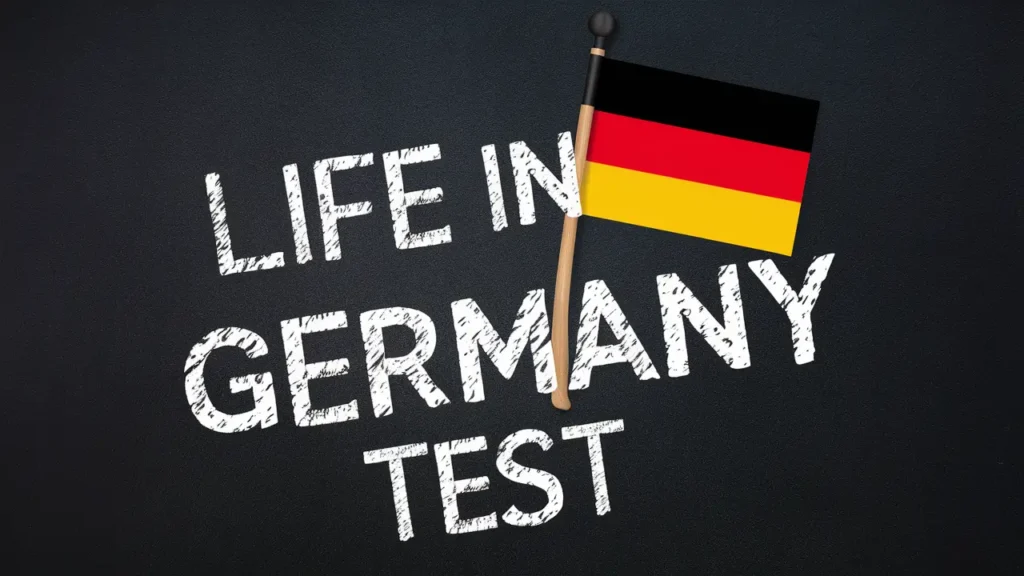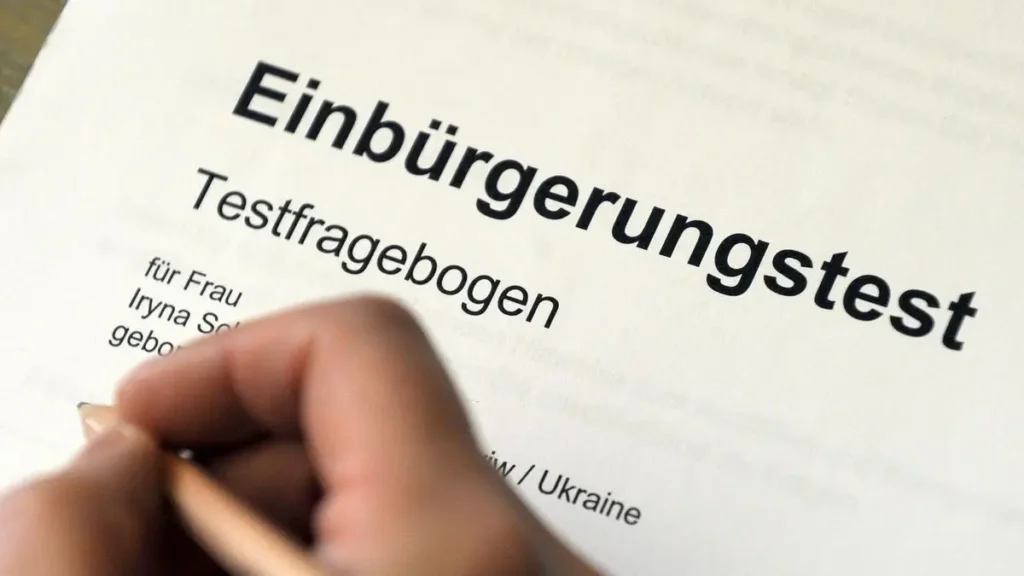For many living in Germany, the ultimate goal is to obtain German Naturalization After Ausbildung, which opens doors to a wealth of benefits and a sense of belonging in their adopted country. One popular route is completing an Ausbildung, or vocational training, followed by work and integration.
In recent years, Germany has recognized the valuable contributions made by skilled immigrants to its economy and society. As a result, the country has taken steps to streamline and modernize its naturalization process. The new German citizenship law, which came into effect in 2023, has introduced several changes that make it easier for qualified individuals to become German citizens.
This guide explains German naturalization after completing Ausbildung, considering the latest legal changes. Whether you’re beginning or already progressing toward naturalization, this article offers essential information for navigating the path to German citizenship.
- Understanding Ausbildung
- New German Citizenship Law: Key Changes
- Eligibility Criteria for Naturalization
- Language Requirements
- Integration and Cultural Knowledge
- Naturalization Process After Ausbildung
- New Possibilities of Dual Citizenship
- Benefits of German Citizenship
- How to Overcome Common Challenges
- Final thoughts
Understanding Ausbildung
Ausbildung is a cornerstone of the German education system and plays a crucial role in the country’s economic success. This unique vocational training program combines theoretical classroom instruction with practical on-the-job training, typically lasting between two to three and a half years. The Ausbildung system covers a wide range of professions, from traditional trades to modern technological fields.
Key features of Ausbildung:
- Dual training system: Students split their time between vocational schools and partner companies, gaining both theoretical knowledge and practical skills.
- Structured curriculum: Each Ausbildung program follows a standardized curriculum, ensuring consistent quality across the country.
- Recognized qualifications: Graduates earn nationally recognized qualifications that employers highly value upon completion.
- Career prospects: Many Ausbildung graduates go on to secure stable, well-paying jobs in their chosen fields.
- Pathway to further education: Completing an Ausbildung can open doors to advanced studies, including university programs.
For immigrants, completing an Ausbildung not only provides valuable skills and qualifications but also demonstrates a commitment to integrating into German society. This commitment positively impacts the naturalization process, demonstrating your eagerness to contribute to the country’s economy and embrace its cultural values.
New German Citizenship Law: Key Changes
The new German citizenship law, which came into effect in 2023, has introduced several significant changes aimed at making naturalization more accessible to qualified immigrants. These changes reflect Germany’s recognition of the importance of skilled workers and its desire to attract and retain talent from around the world.
Major updates in the new law:
- Reduced residency requirement: The residency requirement for citizenship has been reduced from eight years to five years!. For those who have demonstrated extraordinary integration efforts, it may be as little as three years in some circumstances.
- Dual citizenship allowance: The new law allows for dual citizenship, eliminating the need for most applicants to give up their original nationality when becoming German citizens.
- Language proficiency flexibility: While German language proficiency remains essential, the new rule offers greater flexibility in demonstrating this proficiency, particularly for older candidates or those facing specific challenges.
- Recognition of integration efforts: The law now gives more weight to an applicant’s efforts to integrate into German society, including completion of vocational training programs like Ausbildung.
- Streamlined process for children of immigrants: Children born in Germany to foreign parents can now acquire German citizenship more easily if at least one parent has been a legal resident for five years.
These changes have made the path to German citizenship more attainable for many immigrants, especially those who have completed an Ausbildung and are actively contributing to the German workforce.
Eligibility Criteria for Naturalization
To be eligible for German naturalization after completing an Ausbildung, applicants must meet several criteria. The new citizenship law has made some of these requirements more flexible, but it’s important to understand that meeting the basic criteria is still essential.
Key eligibility requirements:
- Legal residency: Applicants must have lived in Germany legally for at least five years. This period can be shortened to three years for individuals with exceptional integration.
- Ausbildung completion: Successfully completing an Ausbildung program enhances your standing in the naturalization process.
- Employment status: Applicants should be able to support themselves and their dependents without relying on social welfare benefits.
- German language proficiency: Demonstrating adequate German language skills is crucial. The required level is typically B1 of the Common European Framework of Reference for Languages.
- Civic knowledge: Applicants must pass a German citizenship test that covers German history, culture, and the political system.
- Good character: A clean criminal record and a strong commitment to the German constitutional order are essential.
- Integration into German society: Participation in community activities and voluntary work demonstrates successful integration and is highly valued.
- Renunciation of previous citizenship: While the new law allows for dual citizenship in many cases, some applicants may still need to renounce their previous nationality, depending on their country of origin and specific circumstances.
It’s crucial to remember that fulfilling these requirements does not ensure naturalization. Each application is evaluated based on its unique merits, taking into account the applicant’s overall circumstances and level of integration.
Language Requirements
Being able to communicate in German is essential to the naturalization process. For one to successfully integrate into German society and take part in civic life, one must be able to communicate well in German.
Understanding the language requirements:
- Required level: Applicants typically need to demonstrate German language skills at the B1 level of the Common European Framework of Reference for Languages (CEFR). This level indicates the ability to understand and communicate on everyday topics.
- Flexibility for certain groups: The new citizenship law introduces more flexibility for older applicants and those with certain disabilities. In some cases, a lower level of language proficiency may be accepted.
- Recognized certificates: Language proficiency can be proven through recognized certificates such as the Goethe-Institut’s B1 certificate or the TestDaF.
- Integration course completion: Successfully completing an integration course, which includes language instruction, can also serve as proof of language skills.
- Ausbildung advantage: For those who have completed an Ausbildung, their ability to successfully navigate the program in German is often viewed as strong evidence of language proficiency.
- Continuous improvement: Continued attempts to increase German language proficiency are looked favorably in the naturalization process, even after attaining the minimum standards.
It’s important to recognize that the language requirements, while they may seem daunting, are designed to ensure newcomers can actively participate in German society. Many applicants find that their language skills naturally improve as they live and work in Germany, particularly after completing an Ausbildung program.
Integration and Cultural Knowledge
Successful integration into German society is a key factor in the naturalization process. This goes beyond mere language proficiency and includes understanding and respecting German culture, values, and social norms.
Key aspects of integration and cultural knowledge:
- Citizenship test: Applicants must pass a test that covers German history, culture, and the political system. This test, known as the “Einbürgerungstest,” consists of 33 multiple-choice questions, of which at least 17 must be answered correctly.
- Constitutional loyalty: Applicants must demonstrate their commitment to the German constitution (Grundgesetz) and the principles of democracy and human rights it embodies.
- Social participation: Active involvement in local communities, such as through volunteering or participation in clubs (Vereine), is viewed favorably.
- Understanding of German customs and traditions: Knowledge and respect for German customs, holidays, and social norms are important aspects of cultural integration.
- Workplace integration: For those who have completed an Ausbildung, their ability to work effectively in a German professional environment is seen as a strong indicator of successful integration.
- Continuous learning: Demonstrating a commitment to continuous learning about German culture and society, even after fulfilling the basic requirements, is greatly appreciated.
The completion of an Ausbildung program often provides a significant advantage in this area. Through their training and work experiences, Ausbildung graduates typically gain deep insights into German work culture and social norms, which can greatly aid in their overall integration.
Naturalization Process After Ausbildung

The process of obtaining German citizenship after completing an Ausbildung involves several steps. While the new citizenship law has streamlined some aspects of this process, it’s still important to approach it methodically and be prepared for each stage.
Steps in the naturalization process:
- Initial consultation: Contact your local citizenship office (Einbürgerungsbehörde) for an initial consultation. They can provide specific information based on your individual circumstances.
- Document preparation: Gather all necessary documents, which typically include:
- Valid passport
- Birth certificate
- Proof of completed Ausbildung
- Employment contract or proof of self-employment
- Proof of German language proficiency
- Certificates from integration courses (if applicable)
- Proof of residence in Germany
- Application submission: Submit your completed application form along with all required documents to the citizenship office.
- Language test: If you haven’t already done so, you may need to take a recognized German language test to prove your proficiency.
- Citizenship test: Take and pass the citizenship test, demonstrating your knowledge of German history, culture, and political system.
- Interview: Some applicants may be required to attend an interview with immigration officials to assess their integration and commitment to German values.
- Processing period: The processing time can vary, but typically takes several months. During this time, the authorities will review your application and may request additional information if needed.
- Naturalization ceremony: If your application is approved, you’ll be invited to a naturalization ceremony where you’ll receive your certificate of naturalization and officially become a German citizen.
- Passport application: After receiving your naturalization certificate, you can apply for a German passport.
The process may vary based on your situation and local citizenship office policies. Stay in close contact with authorities. This helps ensure a smooth and successful naturalization journey.
New Possibilities of Dual Citizenship
One of the most significant changes in the new German citizenship law is broader acceptance of dual citizenship. This change opens new possibilities for immigrants who once had to choose between their original nationality and German citizenship.
Key points about dual citizenship under the new law:
- General allowance: The new law allows most applicants to retain their original citizenship when becoming German citizens. This is a major shift from the previous requirement to renounce other citizenships in most cases.
- Exceptions: While dual citizenship is now generally allowed, there may still be some exceptions based on the applicant’s country of origin or specific circumstances.
- EU citizens: The process is typically straightforward for citizens of other EU countries, as dual citizenship has been allowed for them even under the previous law.
- Non-EU citizens: The new law extends the possibility of dual citizenship to many non-EU citizens who previously had to renounce their original citizenship.
- Country of origin regulations: It’s important to check the laws of your country of origin, as some countries may not allow their citizens to hold dual citizenship.
- Benefits: Dual citizenship allows individuals to maintain ties with their country of origin while fully integrating into German society. It can provide advantages in terms of travel, work, and cultural connections.
- Responsibilities: Dual citizens should be aware that they may have obligations to both countries, such as tax responsibilities or military service requirements.
For those who have completed an Ausbildung and are considering naturalization, the option of dual citizenship can make the decision easier. It allows them to embrace their new German identity while maintaining important connections to their cultural heritage.
Benefits of German Citizenship
Obtaining German naturalization after Ausbildung completion opens up a world of opportunities and benefits. Understanding these advantages can help motivate applicants through the naturalization process.
Key benefits of German citizenship:
- Voting rights: German citizens can participate fully in the democratic process, voting in local, state, and federal elections.
- Freedom of movement: As an EU citizen, you gain the right to live and work in any EU member state without restrictions.
- Consular protection: If Germany does not maintain an embassy in a foreign nation, you have the right to consular protection from any EU member state when traveling outside the EU.
- Job opportunities: Some positions in the public sector and certain regulated professions are only open to German or EU citizens.
- Social security benefits: While many benefits are available to permanent residents, citizenship can provide additional security and access to certain programs.
- Educational opportunities: German citizens have access to free education at public universities and may be eligible for various scholarships and grants.
- Visa-free travel: A German passport allows visa-free or visa-on-arrival access to numerous countries worldwide.
- Political participation: Beyond voting, citizens can run for political office and engage more deeply in shaping Germany’s future.
- Cultural belonging: Citizenship can provide a stronger sense of belonging and identity within German society.
- Family reunification: It may be easier to bring family members to Germany as a citizen.
For those who completed an Ausbildung and integrated into German society, citizenship is the final milestone. It opens doors to more opportunities for personal and professional growth.
How to Overcome Common Challenges
The new law makes it easier to obtain German citizenship after Ausbildung. However, obstacles may still exist. The naturalization process can proceed more smoothly if you understand these challenges. Knowing how to overcome them is also crucial.
Common challenges and solutions:
- Language proficiency:
- Challenge: Meeting the required B1 level of German can be difficult for some.
- Solution: Immerse yourself in the language through daily practice, language exchange programs, or additional courses. Your Ausbildung experience should have provided a strong foundation.
- Documentation complexities:
- Challenge: Gathering all necessary documents, especially from your home country, can be time-consuming.
- Solution: Start collecting documents early. Consult with your local citizenship office for guidance on acceptable alternatives if certain documents are hard to obtain.
- Integration requirements:
- Challenge: Demonstrating sufficient integration into German society.
- Solution: Actively participate in local community activities, join clubs, or volunteer. Your Ausbildung experience is a strong point in your favor.
- Citizenship test preparation:
- Challenge: Passing the test on German history, culture, and political system.
- Solution: Utilize official study materials and practice tests. Consider joining a study group with other applicants.
- Processing times:
- Challenge: The German Naturalization After Ausbildung process can take several months or longer.
- Solution: Stay patient and maintain open communication with the citizenship office. Use this time to further improve your language skills and integration.
- Financial stability:
- Challenge: Proving you can support yourself without relying on social benefits.
- Solution: Maintain stable employment, ideally in the field of your Ausbildung. If necessary, seek additional qualifications to improve your job prospects.
- Dual citizenship complications:
- Challenge: Navigating the regulations of both Germany and your home country regarding dual citizenship.
- Solution: Research thoroughly and consider seeking legal advice to understand your specific situation.
- Cultural adjustment:
- Challenge: Fully adapting to German cultural norms and expectations.
- Solution: Embrace opportunities to engage with German culture, both through your work environment and in your personal life. Your Ausbildung experience should have provided valuable insights.
Remember, Many applicants face similar challenges. Completing an Ausbildung program shows your commitment to integration. It provides valuable skills and experiences. These can help you overcome these hurdles.
Final thoughts
The journey from Ausbildung to German citizenship is a significant and rewarding one. It represents not just a change in legal status, but a deep integration into German society and culture. For those who have invested time and effort in completing an Ausbildung and building a life in Germany, citizenship is the culmination of years of hard work and dedication.
As you commence or persist in your pursuit of German citizenship, be proud of the progress you’ve made. The country you now call home as well as your personal life have already benefited from your decision to pursue an Ausbildung and establish a life in Germany. The next thrilling chapter in your life will begin when you become a citizen of Germany, strengthening your links to the nation where you have decided to base your future and creating a plethora of new options.




